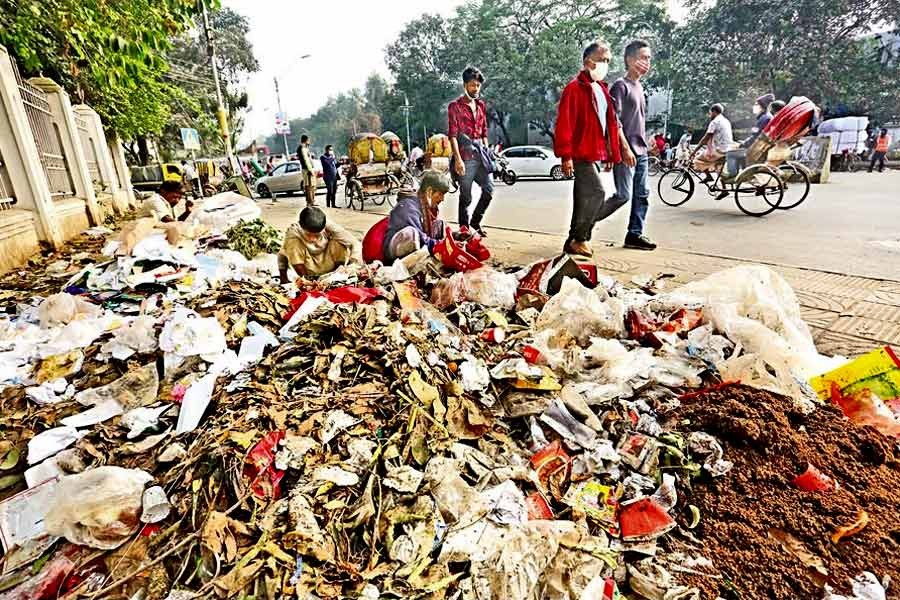Waste management is a big headache for the city corporation authorities in Dhaka. Heaps of waste are found here and there. These heaps of garbage emit foul smell to the annoyance of passers-by. According to a study, 2.7-2.9 million tonnes of waste are generated annually in Dhaka city, 70 per cent of which are food waste. The city corporations are not sitting idle. They are applying different techniques to collect the waste. In the recent past it was noticed that bins were installed at every corner of city roads and thoroughfares to collect the waste. But many of them rusted away, while others were broken into pieces by drug addicts and sold as scraps to buy drugs. Now teams have been deployed to collect kitchen waste from households in the city. They render the service for a nominal monthly charge. But the problem is the service is irregular. So the service-seekers are not happy. As a result, this service is also destined to fail.
The city fathers can try another system to collect the kitchen waste from the households. They can place bins on the roadsides at regular intervals so that the households can dump their waste there at the end of the day. In the morning the cleaners of the city corporations can collect the waste as part of their regular duty. It will involve no extra charge for the households. The households will also be happy to cooperate by just dropping the rubbish into the bins nearby. It will be more feasible than the methods in use now. The people are willing to help keep the city clean. It is evident when the cows and other animals are slaughtered during the Eid-ul Azha. But they do not find a sustainable system that works.
To keep the city clean the roads should be kept clean first. Broken roads, heaps of garbage or other materials stored on footpaths not only cause inconvenience to the passers-by, but also make the city roads look ugly. People think twice before defiling a clean space as we see in posh shopping malls. They do not even throw a piece of tissue paper on the tiled floors of the shopping malls. So it's all about habit. The city authorities should keep that in mind while doing any development work.
The situation of waste disposal is far worse in the city slums, where garbage is thrown here and there thoughtlessly. They are exposed to different communicable diseases. They have every right to live in a clean environment. According to a study, 1.8 million people live in slums across the country. Almost half of them live in Dhaka division. This is a large number. They are the worst victims of the poor waste management system that can change the face of the city.
Waste management is a very important issue. It can help reduce our health risk and give us a better living environment. On the other hand, the waste can be recycled for improving soil quality and generating more green energy.


